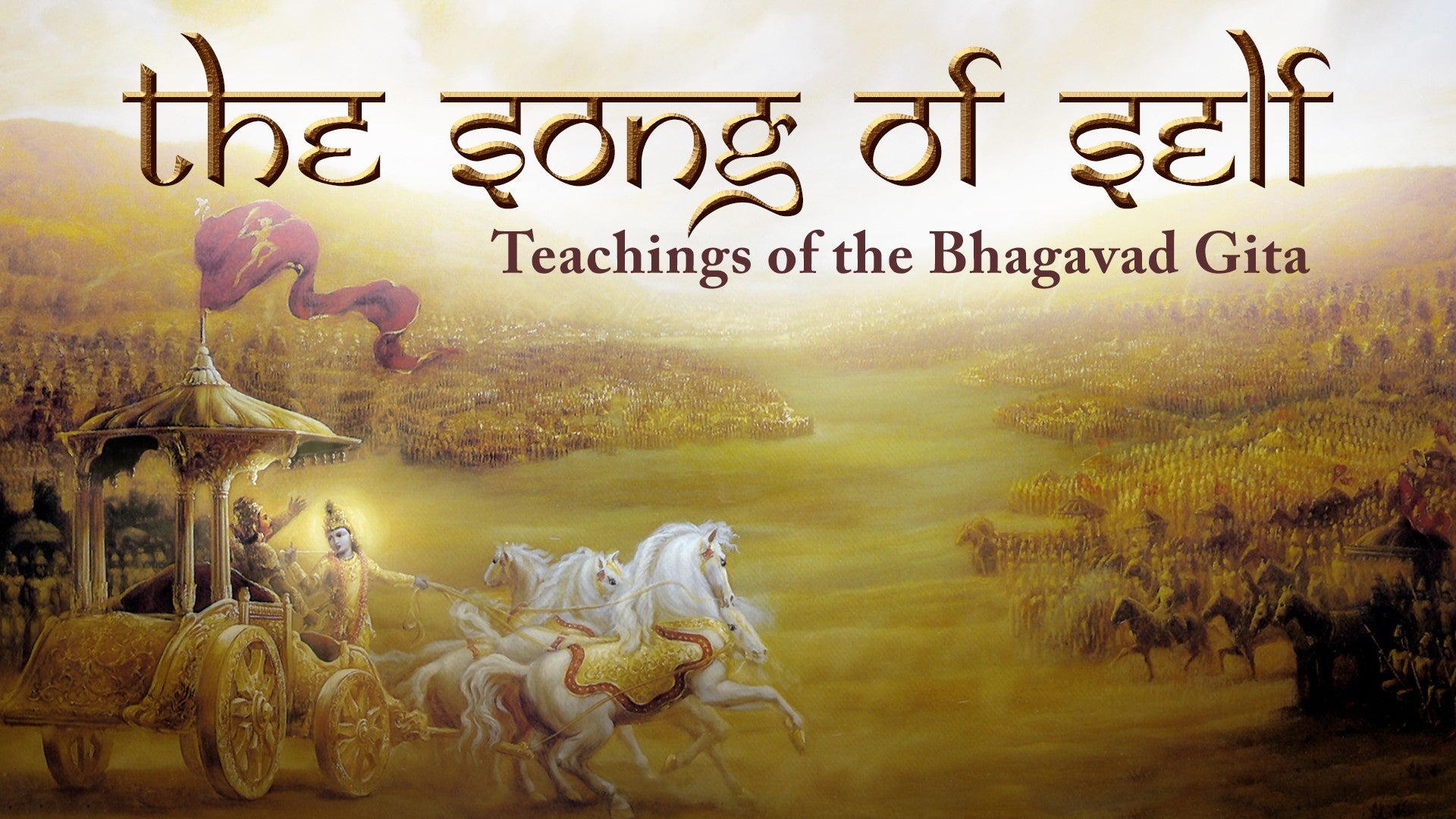Description
About This Video
Transcript
Read Full Transcript
So, in the 41st verse, Krishna has introduced this idea that there are so many ways we can delude ourselves or distract ourselves. And in 42 to 44, he kind of illustrates some of the ways we can do this. And the 44th verse culminates when Krishna says, if you have these types of attitude, you're not going to have that resolute energy, which is going to be conducive to samadhi, to that integrated awareness, which is yoga, which is a platform for development in yoga. So, what are some of these ways we can distract or delude ourselves? We mentioned earlier the idea of veda. Now, the veda is a whole body of literature, and veda can mean different things to different people. It means revelation, it can mean teachings. And in the body of Vedic literature, there are basically two main thrusts, two main focuses. The first is how to live prosperously in the world. So, in the veda, for example, amongst the Vedic literature, there are sections which tell you how to maintain abundant harvests, how to live sustainably in community. They even tell you about the perils of gambling in some sections of the veda, all sorts of things about the practical things in life. And there's this other section of the veda, which is about ultimate reality and how to recognize it. But there's a big part of the Vedic literature, which is basically about how to prosper in the world. And so, consequently, because the veda range far and wide, there are some sections which apparently contradict other sections. So Krishna says here, there are those, avipashchita, the last word in the first line of the 42nd verse. Avipashchita means one who is not really wise, one who is not so inspired or learned or attentive.
And he says, such people, what do they do? Preventi, they declaim, they speak. Pushpitaamvacham, flowery words, beautiful rhetorical arguments. Vedavadarata, they delight in discussing the veda and pulling the text to pieces and substantiating various positions. And some of them even say things like, there is nothing more than all of this. Anyatnas, there's nothing beyond all of this, like the materialists. So in the Indian tradition, there is a group of philosophers they call the charavakas, who are the out and out materialists. There is nothing beyond this, there is only this. And to some people, they delight in using rhetoric to build up that type of position that denies the possibility of anything beyond what we can actually see and feel right here, right now. Now personally, I think that that kind of ultra materialist viewpoint is actually very unrealistic. Because I've yet to meet a human being who doesn't acknowledge that there are certain things that they have experienced that they cannot quantify. Like you experience excitement, you experience love, you experience sorrow, but you cannot see or pinpoint these things. But nonetheless, some humans do enjoy taking this very materialistic, reductionist viewpoint. And Krishna says, yes, some people they get caught up in all this rhetoric. And getting caught up in rhetoric is its own danger. When we start studying the veda, we can fall into the trap of thinking that the study of the veda is all that there is. And we get lost in the intellectualization. Yoga takes rather a harsh view of that. They say it's just escapist illusion. And Krishna is not a fan of that type of attitude at all. And he goes on to say, you know, others, karmatmanas forgapara, their mind full of desires, and with the idea that heaven and its associate pleasures is the greatest thing, what did they do? They basically sentenced themselves to janma, birth and rebirth, karma, and the consequent action, and pala, the fruits of those actions. So when we focus only on material gain, we become almost like a prisoner of our actions. We want this, so we're bound by our actions. Kriyavishiesha bahulam. But what happens when we're born, when we have to experience all the challenges of life? As we're making all these different types of actions, it's beset with all these difficulties, all these challenges. And if we just have the attitude that this is all there is, then it's very easy to feel kind of weighed down by that and be bound by it. Bhogeshwariyagatimprati. And people often get motivated by pleasure and by power. But if you get motivated by power, what generally really starts to happen? If you want to control everything, what happens? You actually diminish your power. This might sound a little contentious, but if you try to control everything, you're using so much energy on things that you can't possibly control.
Because in nature, in all its majesty and glory, things happen. They just happen. And we can't control them. And we don't know what's going to happen when we do something. So if we try to control, and we try to control what we enjoy, there's actually a high chance that we're going to sentence ourselves to a less enjoyable time. Because we'll be diverting so much energy trying to control that which is actually beyond our control. Bhogeshwariyaprasaktanam. Bhogeshwariyaprasaktanam. And Krishna says, the chetas, the awareness of those who are overly attached and overly concerned with power, dominion, and sensory enjoyments, what happens? If you distract yourself chasing worldly power, chasing sensory enjoyments all the time, distracting yourselves in fancy intellectualization, instead of paying attention to the grounded reality of what you're actually experiencing, then Krishna lays it out clearly. Then you will not have the requisite, resolute clarity of mind that is the prerequisite for the experience of samadhi. So the basic practice of yoga is to come to oneness, to invite every part of yourself into the here and now. So if we become kind of overburdened with the idea that I have to have this or I have to have that, we can become a warrior. And here we are. And life is serving us of a beautiful meal today. But we want it to be like this, we want it to be like, oh, what are we like tomorrow? We can't even enjoy the meal we have here. And so Krishna says, there's all these ways to distract yourself. Be wary of that. Because if you allow your energy to be dispersed, you won't really give yourself the opportunity to discover your true depth. Because when we disperse our energy, there's a kind of lack of concentration. When we concentrate our energy, then things can expand. And Krishna teaches how to do that in the coming verses.
The Song of Self: Bhagavad Gita: Chapter 2
Comments

You need to be a subscriber to post a comment.
Please Log In or Create an Account to start your free trial.








